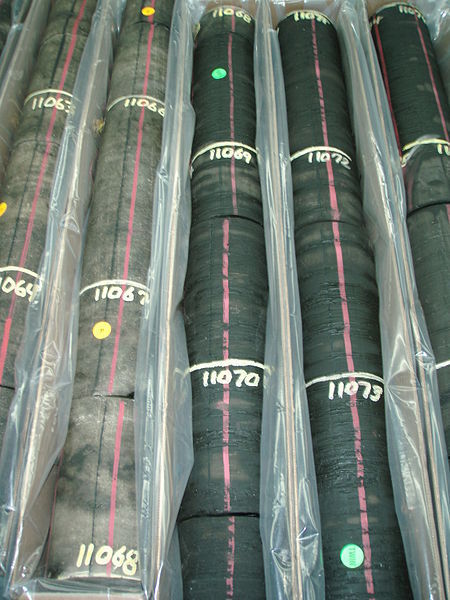Iowa Utilities Board approves Bakken pipeline

North Dakota Bakken core in 2012.
March 10, 2016
The Iowa Utilities Board voted 3-0 on Thursday to approve the Bakken oil pipeline, which would carry crude oil through four states, including Iowa.
The pipeline, proposed by Dakota Access LLC, would stretch 1,168 miles long, including diagonally across Iowa and three other states: North Dakota, South Dakota and Illinois.
Iowa is the last state to approve the pipeline, and the unanimous decision would also allow Dakota Access to use eminent domain for land needed for construction.
“Gov. Branstad and Lt. Gov. Reynolds appreciate the thorough, thoughtful and transparent process conducted by the Iowa Utilities Board in reaching a decision,” Branstad and Reynolds said in a joint statement. “The Iowa Utilities Board allowed many different stakeholders to voice their opinions on the Bakken pipeline and the governor and lieutenant governor respect the decision made.”
At the IUB meeting Thursday, board members said they thoroughly reviewed all factors, including risks to the environment, before making their decision. Protesters inside the board room stood up one by one, saying “I’m an Iowan, and I vote no,” before walking out of the room.
Activists have argued against the construction, arguing that the possibility of oil spills presents a threat to the environment. Those in favor say the pipeline would create jobs and push the United States toward energy independence.
The pipeline would pass from the Northwest to the Southeast through 18 counties in Iowa: Lyon, Sioux, O’Brien, Cherokee, Buena Vista, Sac, Calhoun, Webster, Boone, Story, Polk, Jasper, Mahaska, Keokuk, Wapello, Jefferson, Van Buren and Lee.
The proposed pipeline route would also include some land currently owned by Iowa State University that is used for a dairy farm, although the university has said the pipeline would not present any operational problems for Iowa State.
The IUB has been hosting public hearings and deliberations on the pipeline, and three members served on the board, all appointed by Branstad, to make their decision.
















